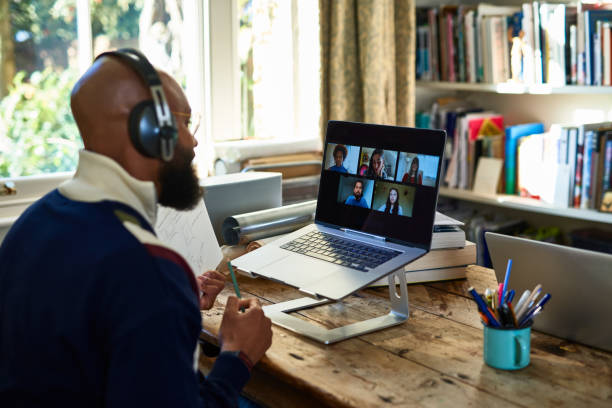Having a set-up specifically for work is important in any job. It will help you focus and be in the right mindset to get the work done.
Creating an effective workspace and maintaining focus is crucial for productivity, especially if you work from home or manage your own schedule. Whether you’re a freelancer, a student, or a small business owner, having a well-organised workspace can significantly impact your efficiency and overall well-being. Don’t overlook it.
1. Choose the right location
Why it matters:
The location of your workspace sets the tone for your productivity. Ideally, choose a space that is quiet, well-lit, and away from distractions.
Tips:
- Natural light: Position your desk near a window to benefit from natural light, which can boost your mood and energy levels.
- Quiet space: If possible, select a room or corner that is free from household noise and interruptions. This will help you maintain concentration.
- Comfortable environment: Ensure the temperature is comfortable, and if needed, use noise-canceling headphones or white noise apps to block out distractions.
2. Invest in ergonomic furniture
Why it matters:
Comfort is key to maintaining focus. Sitting for long hours in an uncomfortable chair or at an awkward desk height can lead to fatigue, back pain, and loss of concentration.
Tips:
- Ergonomic chair: Invest in a chair that supports your back and encourages good posture. Look for adjustable options that align with your desk height.
- Proper desk height: Your desk should allow your arms to rest comfortably at a 90-degree angle when typing. Consider a standing desk for added flexibility.
- Monitor positioning: Position your monitor at eye level to avoid neck strain. If you use a laptop, consider using a stand and an external keyboard.
3. Declutter and organise your space
Why it matters:
A cluttered workspace can lead to a cluttered mind. Keeping your area tidy helps you stay focused and find what you need without unnecessary stress.
Tips:
- Minimalism: Keep only essential items on your desk. Store paperwork, stationery, and other supplies neatly in drawers or organisers.
- Cable management: Use cable clips or ties to keep cords organised and out of sight. This reduces visual clutter and makes your workspace look cleaner.
- Daily tidy-up: Spend a few minutes at the end of each day organising your workspace. A clean environment is more inviting and helps you start the next day on a positive note.
4. Personalise your workspace
Why it matters:
Adding personal touches to your workspace can make it more enjoyable and help you feel connected to your environment, boosting creativity and motivation.
Tips:
- Inspiring decor: Add items that inspire you, such as artwork, photos, or motivational quotes.
- Plants: Indoor plants can improve air quality and add a touch of nature to your space, creating a calming atmosphere.
- Colour scheme: Choose a colour palette that energises and motivates you. Soft blues, greens, or warm neutrals can create a soothing environment.
5. Set clear boundaries
Why it matters:
Boundaries help separate work from personal life, which is especially important if you work from home. Clear boundaries help you maintain focus during work hours and fully relax during downtime.
Tips:
- Defined work hours: Set specific start and end times for your workday and stick to them. This helps create a routine and reduces the temptation to overwork.
- No-disturbance rules: Communicate your work hours to family or housemates to minimise interruptions.
- Dedicated space: Avoid working from the couch or bed, as this can blur the lines between work and relaxation, making it harder to switch off.
6. Use focus-enhancing techniques
Why it matters:
Staying focused can be challenging, especially with the distractions of home life or the internet. Using specific techniques can help you maintain concentration.
Tips:
- Pomodoro technique: Work for 25 minutes, then take a 5-minute break. Repeat this cycle four times, and take a longer break after the fourth session. This method helps maintain focus and prevents burnout.
- Task prioritisation: Start your day by listing your tasks and prioritising them. Focus on completing high-priority tasks first.
- Limit digital distractions: Use apps like Focus@Will, Freedom, or StayFocusd to block distracting websites and apps during work hours.
7. Keep your workspace clean and healthy
Why it matters:
A clean workspace promotes a clear mind and reduces the risk of getting sick, which can impact your productivity.
Tips:
- Regular cleaning: Wipe down your desk, keyboard, and monitor regularly to keep them dust-free and hygienic.
- Stay hydrated: Keep a water bottle on your desk to remind you to drink water throughout the day.
- Healthy snacks: Keep healthy snacks like nuts or fruit nearby to keep your energy levels up without resorting to sugary snacks.
Setting up a productive workspace and maintaining focus requires intention and planning. By choosing the right location, investing in ergonomic furniture, keeping your space organised, and implementing focus-enhancing techniques, you can create an environment that supports your productivity and well-being. Remember, your workspace is a reflection of your mindset.




